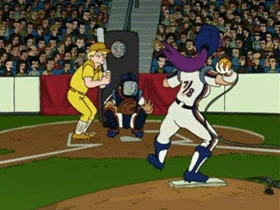XiaNaphryz
LATIN, MATRIPEDICABUS, DO YOU SPEAK IT
https://sports.yahoo.com/news/mlb-p...-ball-with-joe-torres-approval-224914115.html
Major League Baseball plans on testing a rule change in the lowest levels of the minor leagues this season that automatically would place a runner on second base at the start of extra innings, a distinct break from the game's orthodoxy that nonetheless has wide-ranging support at the highest levels of the league, sources familiar with the plan told Yahoo Sports.
A derivation of the rule has been used in international baseball for nearly a decade and will be implemented in the World Baseball Classic this spring. MLB's desire to test it in the rookie-level Gulf Coast League and Arizona League this summer is part of an effort to understand its wide in-game consequences – and whether its implementation at higher levels, and even the major leagues, may be warranted.
"Let's see what it looks like," said Joe Torre, the longtime major league manager who's now MLB's Chief Baseball Officer and a strong proponent of the testing. "It's not fun to watch when you go through your whole pitching staff and wind up bringing a utility infielder in to pitch. As much as it's nice to talk about being at an 18-inning game, it takes time.
While the specifics of the rule are not final, the current plan is to start with a runner on second base in the 10th and every inning thereafter. As baseball grapples with ways to increase action in a game with a record-low rate of balls in play, changing its extra-innings rules emerged as a solution with multiple potential benefits.
In addition to the increase in action a forced runner would create, so too would a philosophical element enter the game: to bunt or not to bunt. The other advantages are not quite as Shakespearean but certainly pragmatic. Amid concern about fatigue and travel, the presumption of shorter games with the new rules could save players from the rigors of extra-innings affairs that slog into the night. Further, the taxation on young arms – especially those in the minor leagues – would be mitigated.
"What really initiated it is sitting in the dugout in the 15th inning and realizing everybody is going to the plate trying to hit a home run and everyone is trying to end the game themselves," Torre said. "I don't know what inning is the right inning. Maybe the 11th or 12th inning. But there are a number of reasons."
The minor leagues are typically MLB's testing ground for potential rule changes, and as commissioner Rob Manfred focuses on pace-of-play issues, the prospect of extra innings with more action is appealing. The possibility of playing under different rules in extra innings – both the NFL and NHL do so in their overtime periods – is real enough that MLB sought feedback from both its playing rules and competition committees this offseason, according to sources.
Even if it is a success, it would likely take years for the major leagues to adopt the changes. The strategy of implementing rules in the minor leagues, which MLB can do without the players' approval, is canny: Once those players graduate to the major leagues, their familiarity with them – such as a pitch clock, which currently is in place in the minors – would allow easier adoption.



